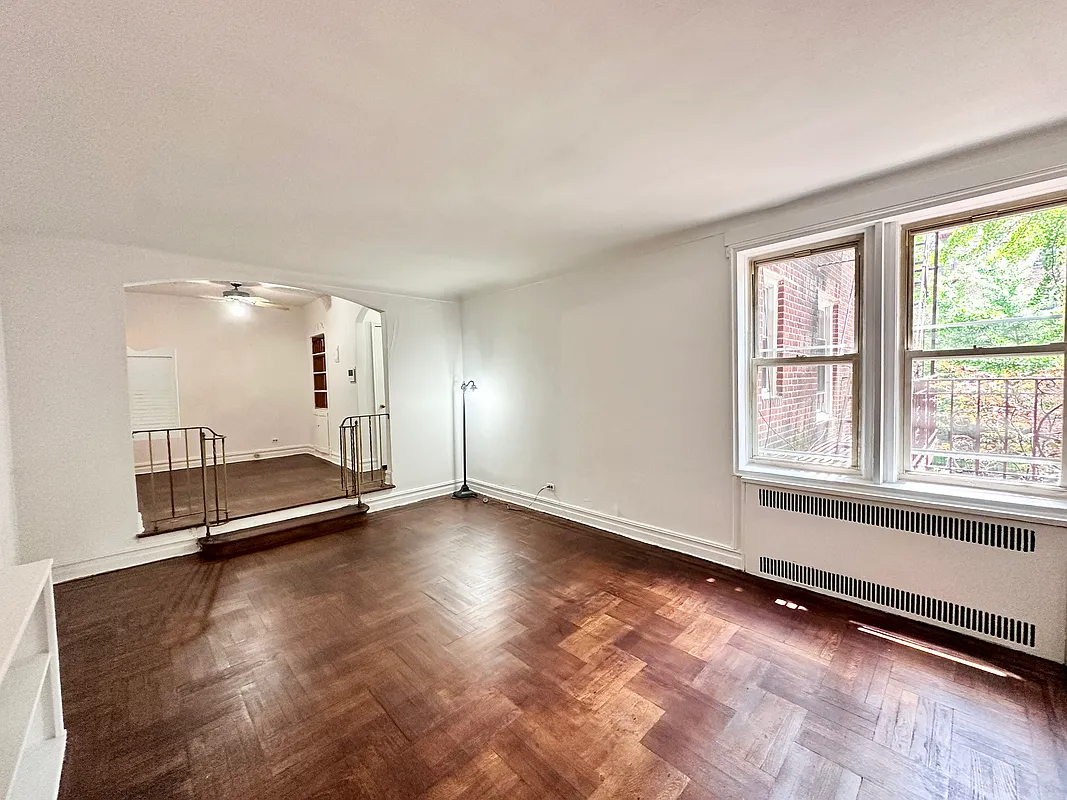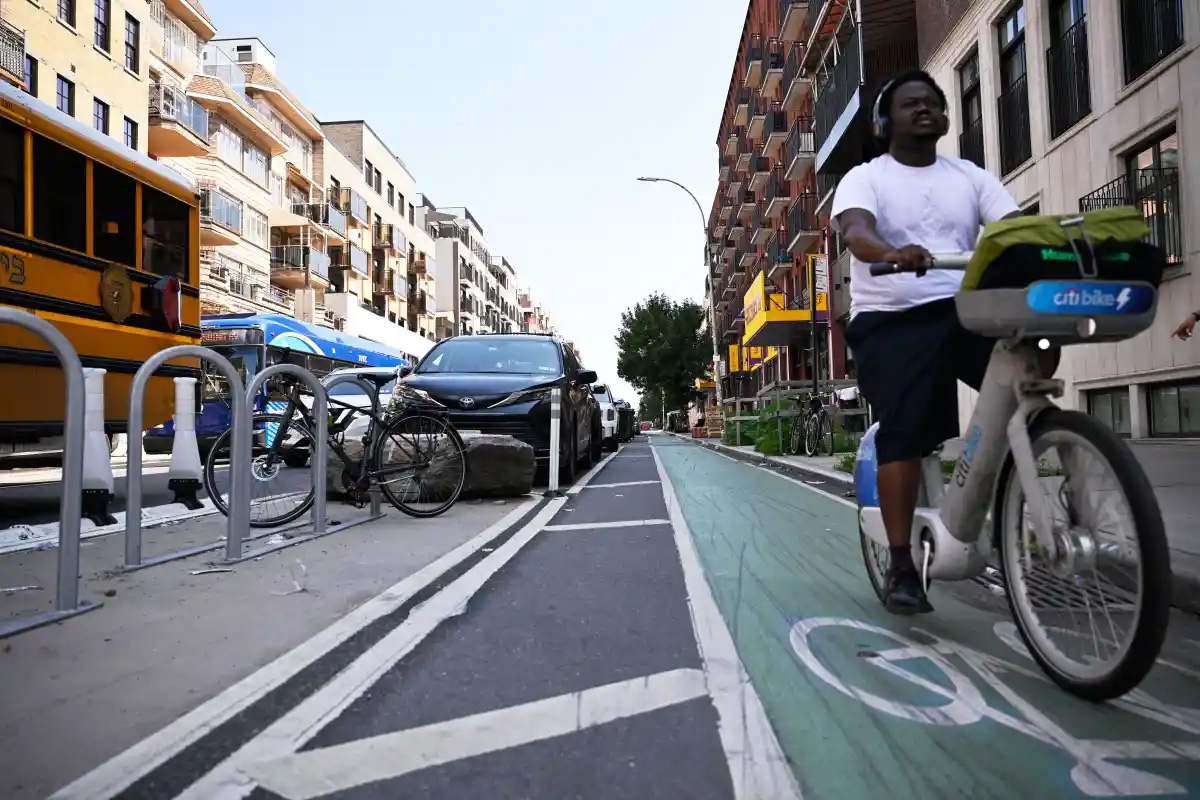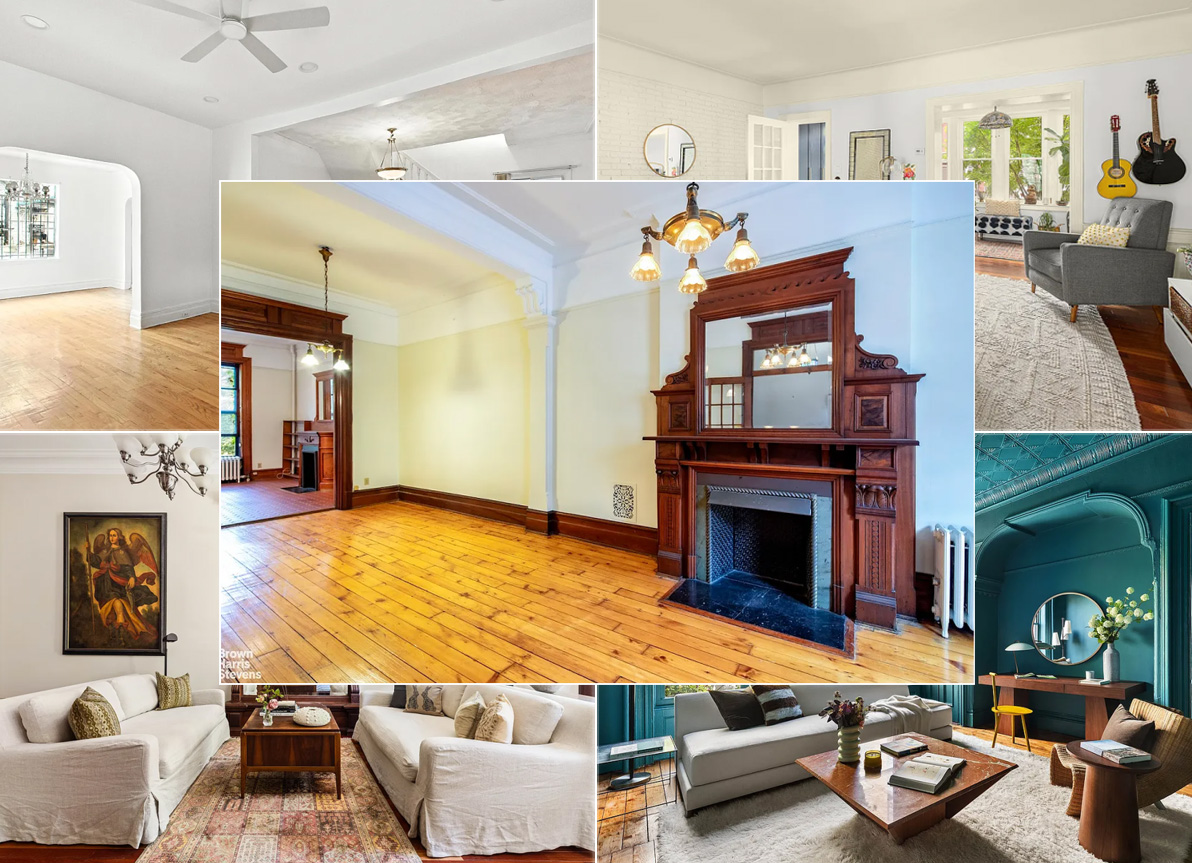East New York's Nehemiah Housing Proving Resilient
When the Nehemiah project launched in the 1980s, it sold houses to residents of East New York for as little as $39,000. The church-run program would buy abandoned, city-owned properties and erect inexpensive homes for residents that met the program’s strict financial credibility checks. Nowadays, Nehemiah (named after the post-exile Biblical character who rebuilt Jerusalem)…

 When the Nehemiah project launched in the 1980s, it sold houses to residents of East New York for as little as $39,000. The church-run program would buy abandoned, city-owned properties and erect inexpensive homes for residents that met the program’s strict financial credibility checks. Nowadays, Nehemiah (named after the post-exile Biblical character who rebuilt Jerusalem) homes sell for as much as $120,000, but this is still well below market rates for similar properties. NPR profiled the organization this week, pointing out that the project has stringent financial checks to ensure that applicants are not involved in any criminal activity and to ensure that they will not default on their mortgages (applicants can spend no more than 20 percent of their income on the mortgage; no more than ten out of over 4,000 homes have been foreclosed in the program’s entire history). Zandra Brockman, an applicant to the program, said the application process was worth the result: “Where else could we live at the prices we had?” she told NPR. “It was truly a blessing for us.” The article adds that applicants who are rejected often organize their finances and re-apply later successfully. Sarah Plowden, who works for Nehemiah and also owns a home through the program, said: “We more than just bought homes. We bought into one another as a people.”
When the Nehemiah project launched in the 1980s, it sold houses to residents of East New York for as little as $39,000. The church-run program would buy abandoned, city-owned properties and erect inexpensive homes for residents that met the program’s strict financial credibility checks. Nowadays, Nehemiah (named after the post-exile Biblical character who rebuilt Jerusalem) homes sell for as much as $120,000, but this is still well below market rates for similar properties. NPR profiled the organization this week, pointing out that the project has stringent financial checks to ensure that applicants are not involved in any criminal activity and to ensure that they will not default on their mortgages (applicants can spend no more than 20 percent of their income on the mortgage; no more than ten out of over 4,000 homes have been foreclosed in the program’s entire history). Zandra Brockman, an applicant to the program, said the application process was worth the result: “Where else could we live at the prices we had?” she told NPR. “It was truly a blessing for us.” The article adds that applicants who are rejected often organize their finances and re-apply later successfully. Sarah Plowden, who works for Nehemiah and also owns a home through the program, said: “We more than just bought homes. We bought into one another as a people.”
Low-Cost Brooklyn Housing Sees Few Foreclosures [NPR]
Affordable Houses Infused With Color [NY Times]
Low-Income? You’re Kidding! [NY Magazine]





While searching for a route to the Indies, or maybe it was that mall on the Belt, I stumbled onto these houses over a year ago (most seemed ready for occupancy but still empty). It was like stepping out of the Tardis and into Dwell magazine; I’m a hater of modern architecture, but they were uncanny in their freshness and novelty, toylike and sort of hip-suburban. Very…architectural. I’d like to see what they’re like now with folks moved in; I’m sure the “Twilight Zone” feeling of the deserted streets, pristine sod squares and unused postboxes has warmed up to feel more like a real community.
gee, ENY, I think the point is what is point of punishment and rehab if gonna be forever banished and can never make a living for oneself. Always wear the scarlet ‘F’ …
How is someone going to contribute to community or support a family ….Aren’t some of these measures a sure way to have the person create more crime if not given chance to lead a real life?
Nehemiah is a real beacon. This is how affordable housing should be done. Everybody deserves to have access to good housing. The education this program offers makes sure the folks who get to buy these homes can continue to hold them for many years. Meanwhile, they become anchor residents in a revitalized neighborhood. It’s a win-win.
“Rob, when you have no idea of what you are talking about, please don’t speak.”
MM, then we’d never hear from him again? You want that?
“Do know it’s illegal to work for a charity if you’re a convicted felon?”
So what? Why should convicted felons be allowed to work for charities? I mean, I don’t personally care one way or the other, but it’s not like this is one of the nation’s most pressing problems. “Convicted felons who are trying to turn their lives around” will just have to look somewhere else for housing. Tough sh!t.
Duly noted king.
Pete, I’m pretty sure the gov’t would disqualify them for most housing grants if they were to permit convicted felons. You’d be surprised how many weird laws have popped up in the last 15 years of rabid “tough on crime” legislation. Do know it’s illegal to work for a charity if you’re a convicted felon?
actually joe, I am specifically curious about what rob thinks is affordable. I have noticed that he claims nearly everything in NYC to be too expensive for anyone who is a single (i.e. not a family). Although your analysis is completely reasonable.
“That’s a nice way of saying they discriminate against convicted felons who are trying to turn their life around.”- I think jumping to conclusions…I would think they are checking for verifiable current sources of income…W2’s , tax returns. Seems to me not wanting someone who is making some quick $$$ dealing drugs and wants to put the money somewhere.
I have a question for rob. A a long-time reader here I have often seen you state that things are not “affordable”. I am just curious as to what your standards of affordability are. What is an affordable monthly expense for studios, one-bedrooms, two-bedrooms, etc.?
We’ll use 30% as the % of income that should be spent on rent/mortage:
The median household income in Brooklyn is 41K. So 30% of that is 12,300. So an “affordable” rent mortgage would be around $1,000 a month.